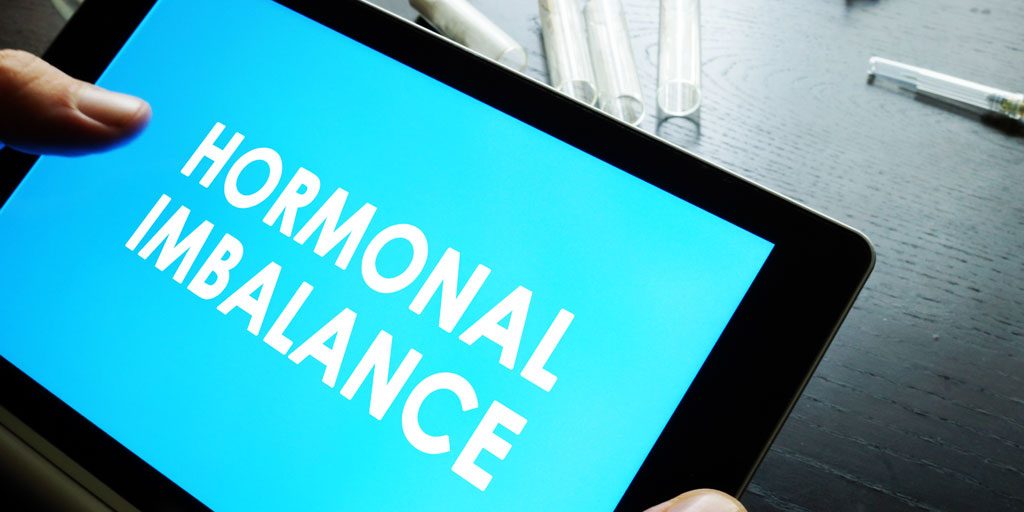Hormone Imbalance Checklist for Symptoms

Both women and men experience hormone imbalance. It happens at any age and stage. But, symptoms of hormone imbalance often mask as other issues. A hormone imbalance checklist is helpful to know what’s normal and what needs addressing. Hormone imbalance goes way beyond mood. It’s also linked to serious diseases like diabetes, heart disease and osteoporosis. Today, we’re giving you a hormone imbalance checklist to clear the confusion on what you can blame on “life happening” and when it could be your hormones.
Changes in sexual function are very common in hormone imbalance although these symptoms show up in different ways for men and women.
Hormone Imbalance Symptom Checklist for Women
Women can have hormone imbalance at any age. This is the era of multitasking. With that, it’s tough to know if you’re just tired, strained or if it’s hormones.
If you’ve had one or more of the below symptoms for more than 6 months, it could be hormone imbalance.
- Low libido: Your sex drive is consistently low, despite circumstances like stress or schedules.
- Vaginal health changes: Changes in vaginal health show up in many ways. Vaginal health changes closely linked to hormone imbalance are:
Vaginal atrophy
Vaginal laxity
Vaginal dryness - Lack of sexual satisfaction: Lack of orgasm is linked to hormone imbalance. If this is something new and you haven’t had an illness, surgery or trauma, changes in sexual satisfaction could be linked to your hormones.
- Unexplained weight gain: You have a healthy diet and exercise regularly, but the weight creeps up. For example, increased belly weight in women in their late 40s is linked to estrogen imbalance.
- Hot flashes: Hot flashes are considered the hallmark symptom of menopause. But you might feel these as young as in your 40s, during perimenopause.
- Mood swings: If you find yourself snippy or weepy without reason, on a regular basis, it could be hormones.
- Changes in hair texture and appearance: If you notice hair loss up top or more facial hair growth it may be your hormones. Along with the growth pattern, the way your hair feels to the touch may change. Hormone imbalance leaves hair feeling dry and brittle.
Hormone Imbalance Symptom Checklist for Men
Hormones are equal opportunity. But hormone imbalance affects men differently than women. In fact, many men are prescribed medications for conditions which the underlying cause is hormonal imbalance. Some men don’t feel comfortable bringing up certain issues to their provider. Whereas women are usually more open. But being open and honest about the changes you’re experiencing is the best first step to feeling and functioning better.
Take a Look at this Symptom Checklist. Do You Have One or More of the Following?
- Decreased sexual performance: Because this is one of the top symptoms that lead men to the doctor, it’s first on the checklist. But, decreased sexual performance is the most misdiagnosed symptom, usually with erectile dysfunction medication.
- Fatigue: Do you feel excessively tired, no matter how much you rest?
- Insomnia: Do you have trouble falling asleep or staying asleep and other conditions like sleep apnea have been ruled out?
- Weight gain: If you’ve gained more than 10 lbs. in the last year, especially in the belly region, it could be hormone imbalance.
- Brain fog: Can’t focus? More forgetful? Brain fog is linked to hormone flux.
- Inability to maintain muscle mass: If your workout routine hasn’t changed but you notice muscle mass decreasing, it’s a symptom of hormone imbalance.
- Depression: Feeling blue, just losing interest in activities you once enjoyed or being more anxious without reason are all signs of hormone imbalance.
Hormone imbalance affects everyone at some point. You’re not alone. Cover this checklist with those you care about then give us a call at Inner Beauty to review your symptoms together.
